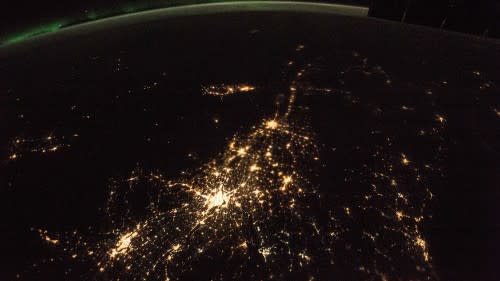Humans have already used more resources than the world can restore this year

Earlier this week, the whole of human consumption of resources exceeded what the world’s natural processes can recover this year. This point, called Earth Overshoot Day, fell on Aug. 2 for 2023, a benchmark annual moment in which human consumption, extraction and pollution causes the world to run an environmental deficit.
Another startling number released by the Global Footprint Network, the organization behind Earth Overshoot Day: humans will basically use up 1.7 Earths’ worth of natural resources this year. What’s more is the day comes earlier and earlier and earlier every year.
So, it’s like Christmas?
If Christmas was a moveable point on the calendar, calculated based on consumption and pollution and designed to spur climate action and track excess consumption, sure.
So, they calculate it?
Correct. It’s not like Fathers’ Day where it falls on the third Sunday of June. The math is a bit harder. The researchers calculate it by taking the amount of natural resources that the planet produces each year (forests growing, for example), then they divide this number by the amount of resources that humans consume in a year. From there, they multiply the result by 365 days, one for each day in a year.
What about leap years?
It looks like they use 366 days instead of 365.

A shot of Eastern Canada taken from the International Space Station in 2015. (NASA)
That makes sense. Where does Canada come in?
Most countries are also given an individualized Overshoot Day. This indicates how quickly the world would reach its overshoot day if everyone consumed like residents of that country. So, for example, Earth Overshoot Day for Canada was on March 13.
Happy belated Earth Overshoot Day?
Not really. Canada, United Arab Emirates, and the United States all share the same Overshoot Day, and are roughly tied for third place behind Luxembourg (silver medal) on Feb. 14, and Qatar (gold medallist) on Feb. 10. Jamaica came in dead last on Dec. 20.
For another point of reference, China’s Earth Overshoot Day was on June 1, which is much earlier than the global Earth Overshoot Day, but better than Canada.
Wait, but Canada is such a small population, and we have a lot of natural resources. Why are we up there with the U.S.?
I mean, why aren’t you asking about Luxembourg or Qatar? Winnipeg is bigger than the former (around 600,000 people), and Vancouver has a similar population with the latter (more than 2.5 million people).
But, anyway, Canadians (along with residents of other countries with early Overshoot Days) consume a lot on a per capita basis. For example, Canada ranks 39th in terms of population size, but in 2020 the country came in fourth in terms of countries with the largest energy consumption thanks, in part, to relatively cheap power. Canadian industries also extract a lot of natural resources, and its consumers buy a great deal of products compared to the rest of the world.
Well, at least are we getting better?
Over time, Earth Overshoot Day has gotten earlier and earlier as the world ramps up its consumption and production. Of course many countries like Canada try to offset or limit their production and consumption for ecological reasons. But, back in 1971, Earth Overshoot Day was sometime in December.
There are, of course, cases where some years are better than others. For example, in 2020, in part due to the pandemic, Overshoot Day was a bit later. For Canada, Earth Overshoot Day also fell on March 13, but in 2019, it fell on March 18. Like the international date, it’s creeped closer over time.
So, Canada’s not exactly been improving its score. That said, the people behind Earth Overshoot Day aren’t publishing the numbers to cause people distress. Rather, they’re hoping people and countries start to take action.
Thumbnail Image: This classic photograph of the Earth was taken on Dec. 7, 1972, by the crew of the final Apollo mission, Apollo 17, as they travelled toward the moon on their lunar landing mission. (NASA)
